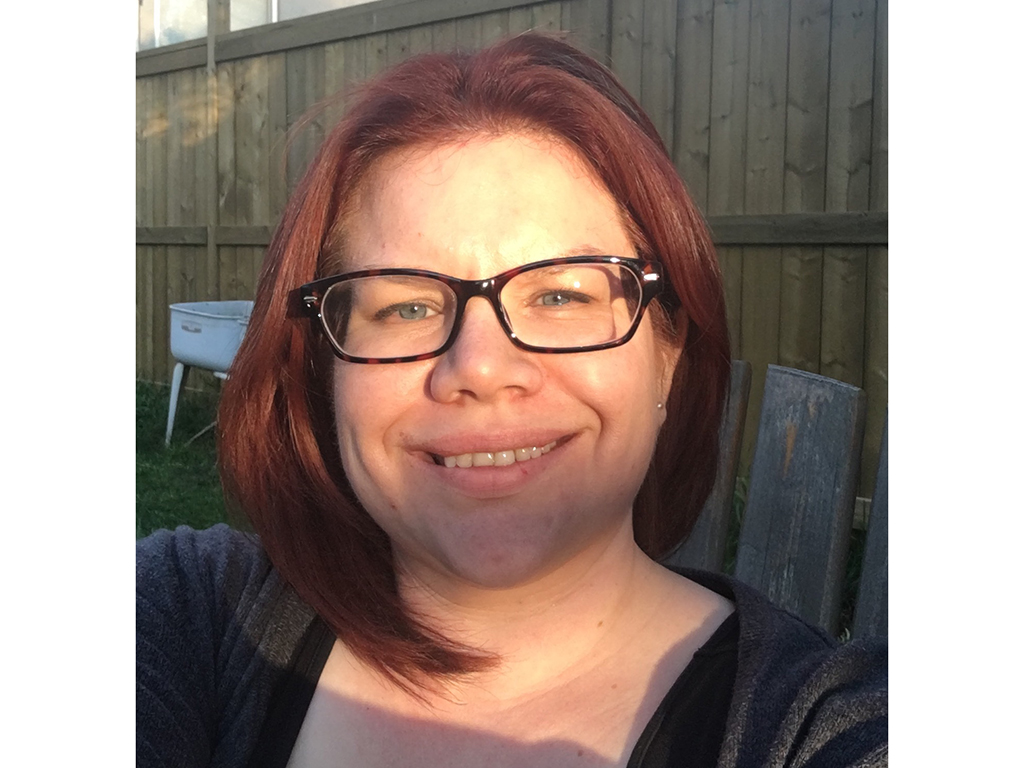In a world of instant satisfaction from “likes” and filters, it’s often difficult not to get lost in the temporary reality of social media.

But for anyone living with anxiety, depression or another mental health disorder, feeds of happy faces and romantic relationships can leave one feeling a sense of loneliness and isolation. On the other hand, it can also be a powerful tool to help you connect with like-minded people.
Ann Marie Mac Donald of Mood Disorders Association of Ontario, says social media can often become a “measuring stick” — a way to show others how popular and engaged you are.
“In this aspect, it can become negative,” she tells Global News. “People can post how well things are going, but they are not sharing their downs. It’s not all glamour, and it’s not all happy.”

What the science says
A 2015 study from the University of Missouri, found Facebook specifically could lead to symptoms of depression and feelings of envy. Another report from earlier this year ranked Instagram as the worst app for young people’s mental health, followed by Snapchat. Seeing friends on vacation or enjoying nights out left some users feeling left out.
READ MORE: This employee needed mental health days. This is how her CEO responded
And anxiety.org notes that because social media itself is so addictive (one study said it is more addictive than cigarettes), we’re also always glued to our screens. People with anxiety may feel like they need to perfect themselves or compare themselves with their followers.
Mac Donald says like anything, social media should also be used in moderation: “There has to be a balance.”
Below, five Canadians share snippets of how social media affects their mental health. Living with either depression, anxiety or both, and relying heavily on social media for work, some say it can be difficult to navigate what’s real and what’s purely for show.
Social media’s so-called perfect picture
Richie Guzmàn, a 28-year-old DJ from Toronto, was first diagnosed with manic depression at 17. “From a very early age, I recognized that a lot of my sadness and low points came from the illusion that I lived a very ‘perfect’ life. Coming from a privileged upbringing, I did not face any real adversities until I finished high school, but was always troubled with issues going on at home behind closed doors,” he says.
Guzmàn’s Latino upbringing also made it hard to talk about mental health at home.
“For a long time, I believed that it was a passing phase that everyone went through or something that you can just ‘get over.’ I never really came to terms with what the term meant until my early 20s when I hit some really low points,” he says.
And as a DJ, Guzmàn relies on his social media presence to make a living — marketing himself, networking and booking gigs. When he’s not working, he’ll look at photos of his fiancée or cat to feel better about his day, but overall, says social media makes him feel worse.
READ MORE: Treatment at Ontario mental health facility was ‘torture’, judge finds
Social media and community
But for others, social media creates a sense of belonging. Catarina Matos, a 24-year-old Arbonne consultant of Brantford, Ont., says social media has allowed her to connect with individuals just like her.
“For those willing to be open about their struggle, we end up discussing our individual situations [and] life struggles. I find discussing with others and seeing what coping mechanisms they use can help spark a new idea for me to try during my times of need,” she tells Global News.
Matos had her first panic attack at the age of 12, and over the years, was diagnosed with anxiety and depression. Sometimes, she’ll scroll through pictures of animals on her phone if she’s feeling nervous or in a depressive state. “I don’t look at what other people are doing because it makes me feel like I amount to nothing in life. I look at the animal accounts I follow because they are so incredibly pure.”
It’s OK to take time off
At the end of May, Cheryl Walker needed to take time off social media. The 38-year-old Edmonton management consultant living with anxiety, considers herself a heavy social media user. “I love Twitter, but it never stops,” she tells Global News.
But Walker also had several other things going on in her life. Besides working a full-time job, she was in school full-time working on her MBA, managing her multiple sclerosis and recently got divorced.
“At the end of March, I would get this feeling of doom,” she continues. “It was like trying to fall asleep after watching a scary movie.”
After going to the doctor, getting diagnosed and receiving medication, Walker decided to cut herself off of social media for almost three weeks. “I was feeling like I wasn’t missing out, but it was just too much stimulation.”
She deactivated her Facebook page, turned off Instagram and Twitter, dating profiles, and made time to see people in real life to talk about her anxiety, something that has helped her be more open about it.
It can be triggering
Kevin Brantuo recently was diagnosed with anxiety after months of constantly feeling nervous. The 24-year-old of Montreal says although he had heard of mental illness before, he never took it seriously.
“Now that I’m actually going through it, I have a better understanding of it,” he tells Global News. “Although it’s not fully understood yet.” And as a frequent social media user, he says sometimes he uses it to distract himself from what’s going on in his actual life. But there are days when these apps and websites make him feel worse.
“It can distract me from my condition, but the cons are that it can sometimes throw it back in my face or just show me something that triggers it all over again,” he says. “It can make me feel worse about myself, it can make me feel stupid for feeling the way I feel and can sometimes even feel like it’s addressing me directly.”
On those days, he says he tries to unplug as much as possible and stay positive. And for someone who really enjoys being on apps for things like memes, he worries the ones about mental health may make light of his condition.
“Memes turn everything into a joke so although they may bring attention to mental health, they’re normalizing it, turning it into a joke and possibly misinforming people at the same time.”
Take a step back and reach out for help
Mani Nanda says she began suffering from anxiety and depression when she was 20, conditions that were stemming from her obsessive compulsive disorder (OCD). “Anyone who has suffered with OCD, knows that it is a mind-numbing and debilitating condition to deal with. I started reading up on articles and watching videos online, and soon enough, everything started making sense,” she tells Global News.
The 22-year-old marketing consultant says although it can be easy to get lost searching your condition online, she knew she had to take a step back when social media began to dictate how she felt. At one point, she declined her social media use for three-and-a-half years.

“I would try and stop myself from watching what other people were doing on Snapchat and Instagram, because it would make me feel absolutely horrible about myself and the way I was living my life,” she says. “However, now I’m on social media for hours every day.”
And not only did she take a step back from her apps, but she also reached out for help. “Now that I’ve gotten help and made quite a bit of progress mentally and emotionally, I do see pros of using social media while suffering from mental illness.”
READ MORE: Social media bad for young people’s mental health
She adds the power in other people’s stories online have become easier to take in, and it also helps her be reflective. But she says that often, the cons still outweigh the pros, but she is learning how to cope with it.
“Mental illness still does affect me every single day, but it has become easier for me to scroll through social media and not let it affect me how it used to. I used to feel really down about myself when I would see other people doing amazing things, but I’ve been actively working on healing and becoming stronger, both mentally and physically, and this has improved my self-confidence tremendously.”
Where to get help
If you or someone you know is in crisis and needs help, resources are available. In case of an emergency, please call 911 for immediate help.
The Canadian Association for Suicide Prevention, Depression Hurts and Kids Help Phone 1-800-668-6868 all offer ways of getting help if you, or someone you know, may be suffering from mental health issues.







Comments